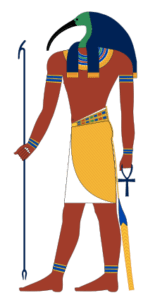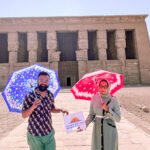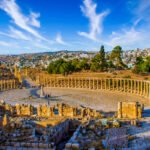The Head of the Egyptian God Thoth NYT: A Journey Through Myth and Modern References
The head of the Egyptian god Thoth NYT has sparked intrigue for centuries, blending the mystique of ancient Egyptian mythology with modern cultural references. Known as the god of wisdom, writing, and prophecy, Thoth was one of the most significant deities in the Egyptian pantheon. His iconic representation with the head of an ibis or a baboon symbolizes intellect, precision, and divine insight.
In recent times, Thoth’s imagery and significance have even made their way into contemporary spaces, such as The New York Times crossword puzzles, keeping his legacy alive in unexpected ways. This blog delves into the symbolism of Thoth, his role in Egyptian mythology, and his surprising modern connections.
Who Is Thoth, and What Does His Head Symbolize?
Thoth, also known as Djehuty in ancient Egyptian, served as the mediator between the gods and humanity. He was the inventor of writing, the keeper of divine records, and the guardian of balance and truth. His most recognizable feature is his depiction with the head of an ibis, a bird revered in ancient Egypt for its meticulous and focused nature.
The Ibis Head
The ibis’s curved beak and serene demeanor symbolize intellect, precision, and spirituality—qualities that align with Thoth’s role as the scribe of the gods.
The Baboon Head
In some representations, Thoth is depicted with the head of a baboon, an animal associated with the moon and prophecy. Baboons were believed to chant during sunrise, symbolizing cosmic order and Thoth’s role in maintaining balance.
What Is the Head of the Egyptian God Thoth?
The head of the Egyptian god Thoth NYT serves as a visual representation of his divine attributes. The ibis and baboon, sacred animals in ancient Egypt, highlight different aspects of his character:
- Ibis: Precision, intellect, and writing.
- Baboon: Prophecy, lunar connections, and judgment.
These depictions are not just artistic choices; they convey the profound respect Egyptians had for Thoth’s wisdom and his role in cosmic harmony.
Thoth’s Role in Egyptian Mythology
Thoth was indispensable in the pantheon of Egyptian gods, acting as the keeper of ma’at (truth and cosmic balance).
Key Roles of Thoth
- Inventor of Writing: Thoth is credited with creating hieroglyphics and recording history.
- Timekeeper: His connection to the moon allowed him to regulate time and the calendar.
- Mediator: Thoth acted as a scribe during divine disputes and the judgment of souls in the afterlife.
- Prophecy: He was known as the Egyptian god of prophecy, offering guidance to both gods and mortals.
Who Is the Head of the Egyptian Gods?
While Thoth is one of the most revered gods, the title of “head of the Egyptian gods” typically belongs to Ra, the sun god, or Amun, the creator deity. However, Thoth’s intellectual and spiritual contributions make him a central figure in Egyptian mythology.
The Head of the Egyptian God Thoth in Modern Culture
The head of the Egyptian god Thoth NYT has found a unique place in modern culture, including in The New York Times crossword puzzles. These puzzles often incorporate clues related to mythology, sparking curiosity among solvers.
Notable Crossword Clues Featuring Thoth
- “Head of the Egyptian god Thoth”: A direct reference to his ibis symbolism.
- “Gorilla gorilla NYT”: Drawing parallels to Thoth’s baboon representation.
- “Judo rank NYT”: Hinting at hierarchies, similar to those among Egyptian deities.
- “Stoops to NYT”: Evoking reverence, much like the worship of Thoth.
- “River where Achilles took a dip NYT”: Connecting to the sacred Nile, central to Egyptian culture.
- “Weighty birds NYT”: Possibly referencing the ibis and its symbolic importance.
These references reflect how mythology continues to enrich modern intellectual and cultural pursuits.
What Makes Thoth Relevant Today?
Thoth’s influence extends far beyond ancient Egypt. He remains a symbol of knowledge, truth, and cosmic order in modern philosophy, spirituality, and pop culture.
Thoth’s Legacy in Modern Times
- Esoteric Teachings: Texts like the Emerald Tablets highlight Thoth’s association with mystical wisdom.
- Popular Culture: Films, games, and novels often reference Thoth’s attributes, especially his wisdom and magical powers.
- Crossword Puzzles: The New York Times and other platforms regularly feature clues related to Thoth, keeping his legacy alive.
Interesting Facts About Thoth
- Inventor of the Calendar: Thoth introduced the 365-day calendar, aligning human timekeeping with celestial rhythms.
- Sacred Animal Mummies: Thousands of mummified ibises and baboons were discovered in temples dedicated to Thoth.
- Role in the Afterlife: Thoth recorded the results of the “Weighing of the Heart” ceremony, ensuring fairness in the judgment of souls.
Exploring Thoth’s Temples and Artifacts
To experience Thoth’s legacy firsthand, visit these sites and artifacts:
- Hermopolis: The city dedicated to Thoth, featuring murals and sculptures of his ibis-headed form.
- Abydos and Karnak Temples: Ancient reliefs illustrating Thoth’s divine roles.
- Papyrus of Ani: Depicting Thoth as the recorder in the afterlife.
How to Connect with Thoth’s Legacy Today
For those fascinated by Thoth, here are ways to explore his enduring influence:
- Visit Egypt: Explore temples and museums showcasing Thoth’s depictions and artifacts.
- Study Ancient Texts: Dive into the Book of the Dead and other Egyptian writings to understand Thoth’s teachings.
- Engage with Modern References: Solve crossword puzzles and read literature that references the head of the Egyptian god Thoth NYT.
Conclusion: The Timeless Wisdom of Thoth
The head of the Egyptian god Thoth NYT is more than an artistic representation or a crossword puzzle clue. It symbolizes the enduring appeal of intellect, balance, and divine insight. From his role in ancient Egyptian mythology to his presence in modern culture, Thoth remains a powerful figure of wisdom and truth.
Whether you’re a mythology enthusiast or a curious crossword solver, exploring Thoth’s story offers a fascinating journey into the timeless quest for knowledge and harmony.
FAQs about Egyptian Gods
- What is the head of the Egyptian god Thoth?
The Egyptian god Thoth is often depicted with the head of an ibis, a bird known for its long, curved beak. In some images, he is shown with the head of a baboon. Thoth is the god of wisdom, writing, and knowledge. - Who is the god Ra in Egypt?
Ra is one of the most important gods in ancient Egyptian mythology. He is the sun god, often depicted with the head of a falcon and a solar disk above it. Ra was believed to sail across the sky in his boat during the day and travel through the underworld at night. - Who is the head of the Egyptian gods?
The head of the Egyptian gods is often considered to be Ra. He was the supreme deity in ancient Egypt, representing the sun and creation. Ra was highly revered, and many other gods were seen as aspects or manifestations of him. - Did Thoth have a bird head?
Yes, Thoth is commonly depicted with the head of an ibis, a bird associated with wisdom and writing. Sometimes, he is also shown with the head of a baboon, which symbolizes his role in knowledge and communication.




